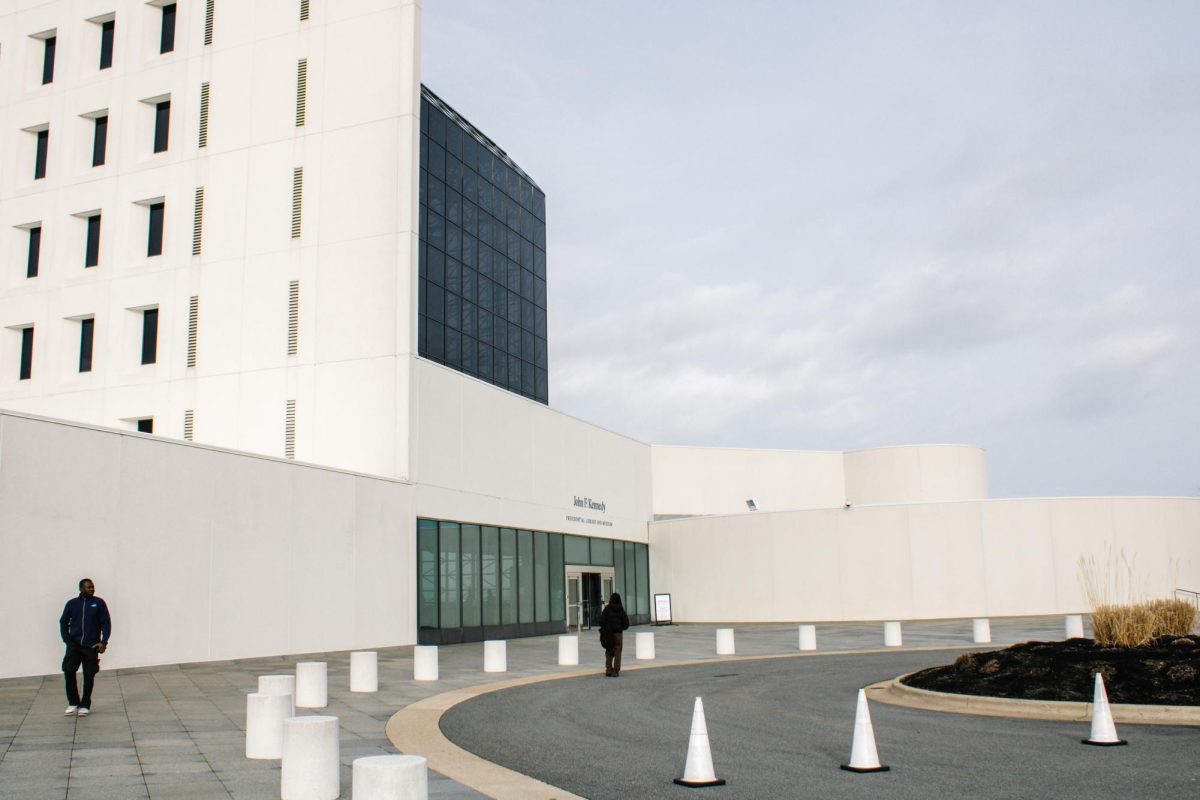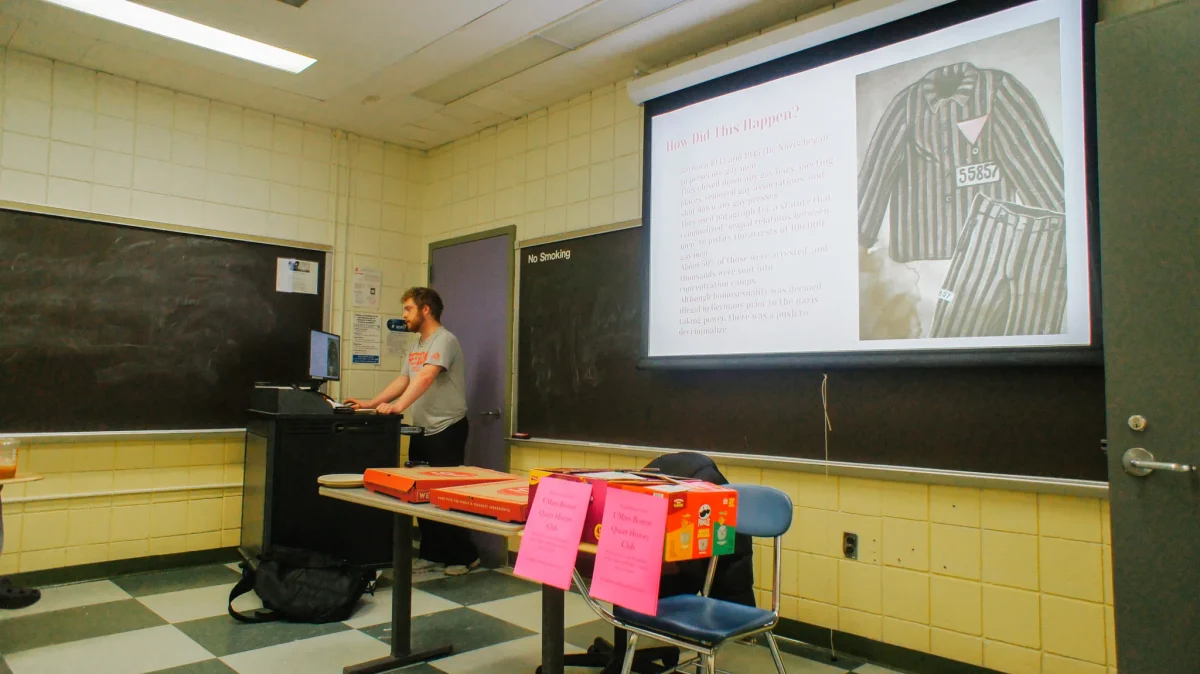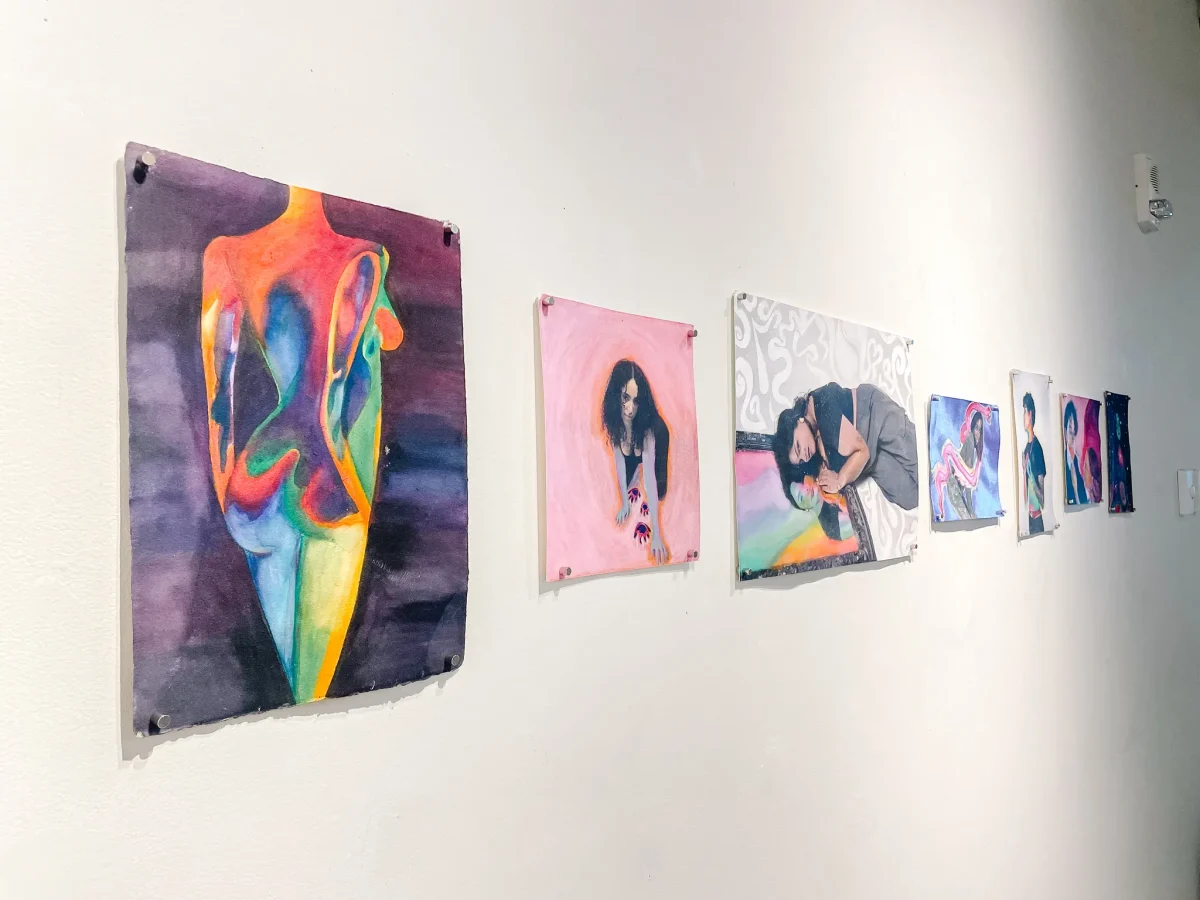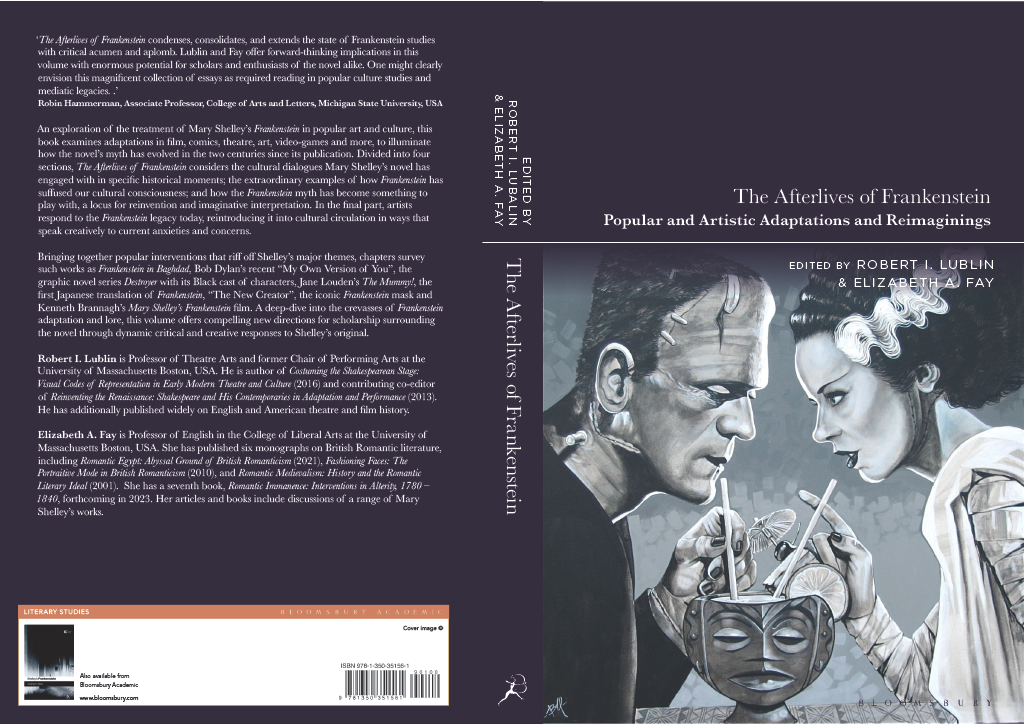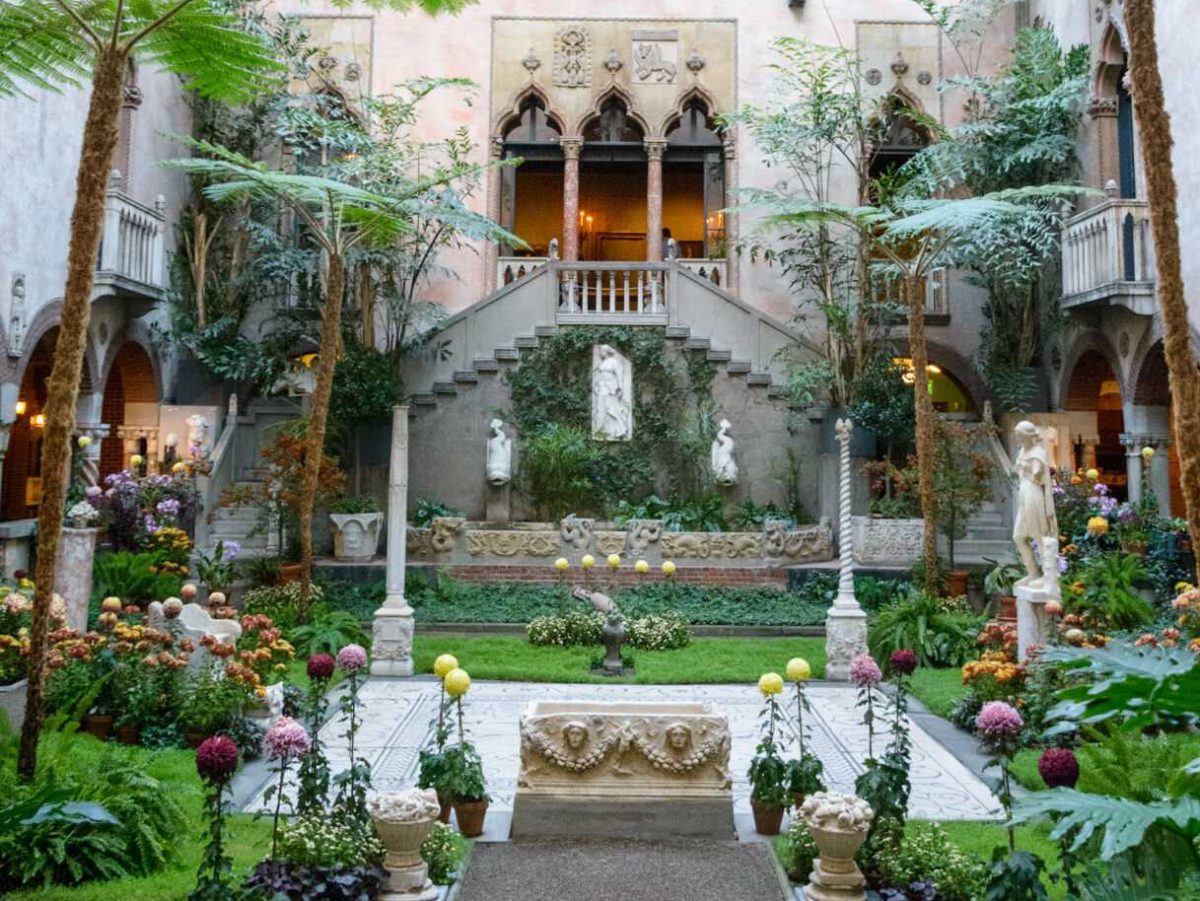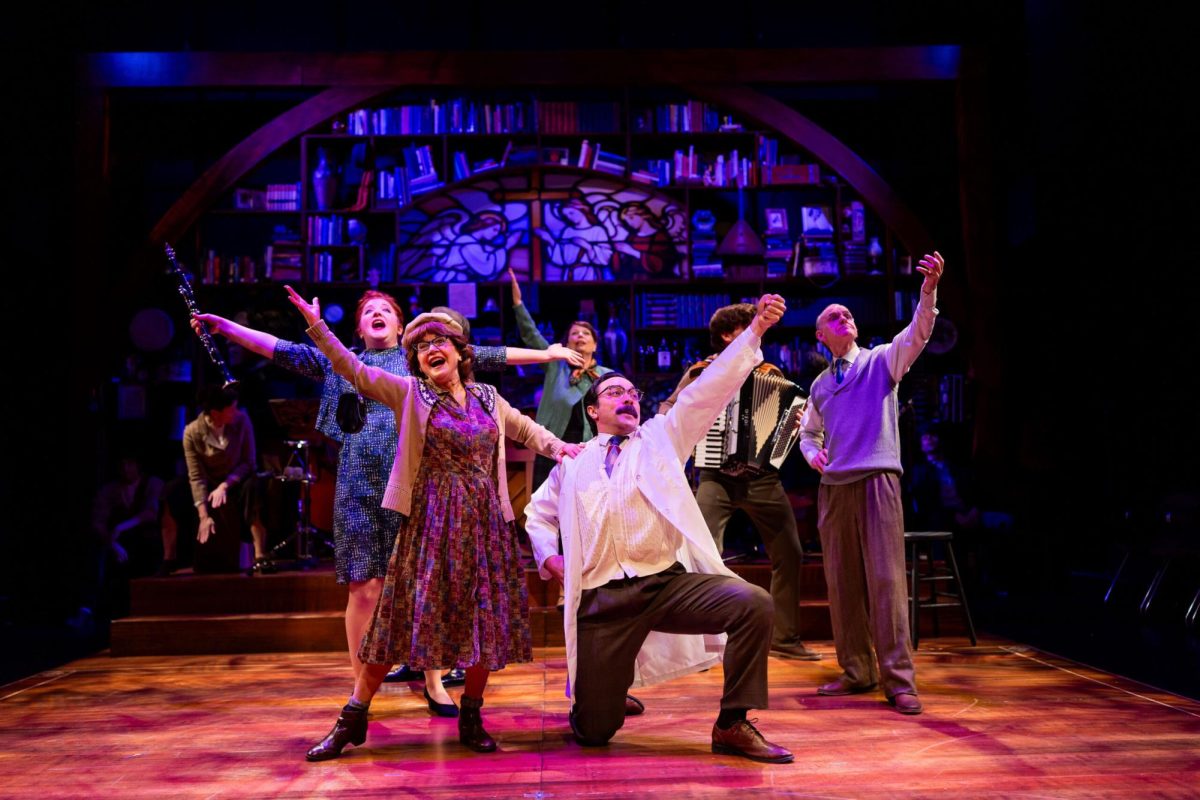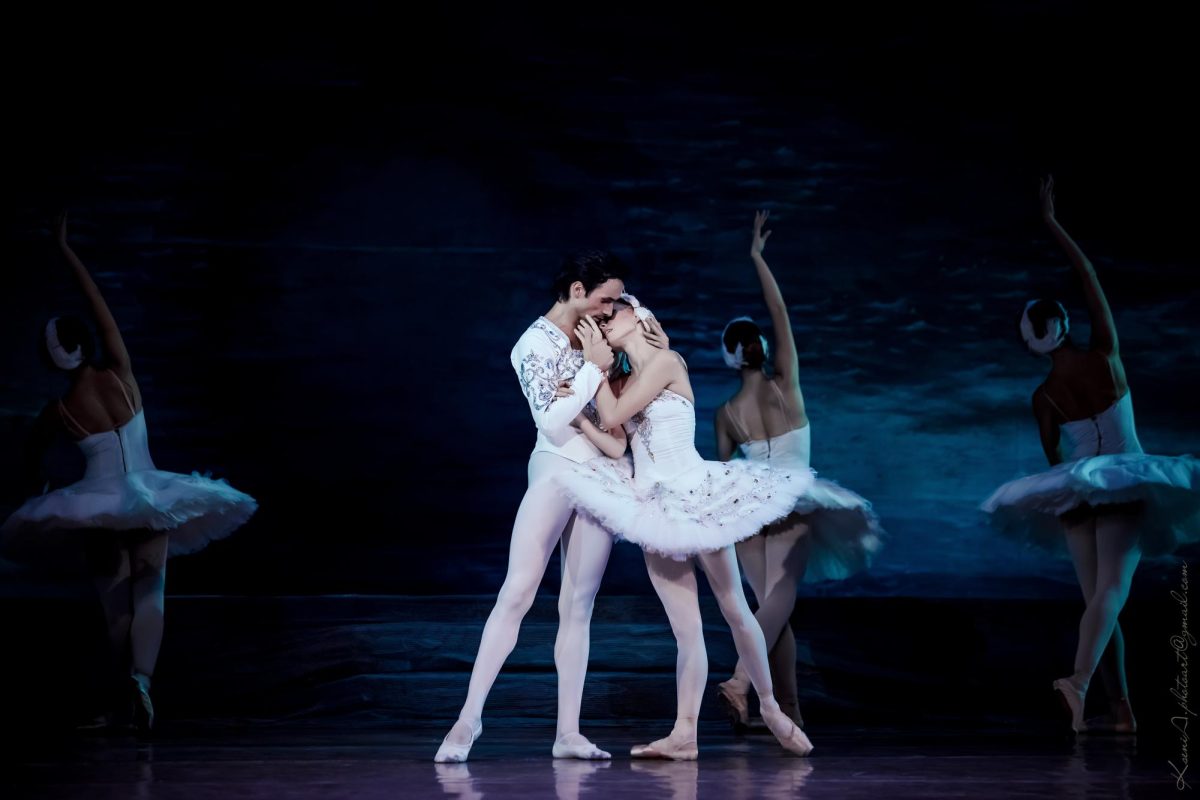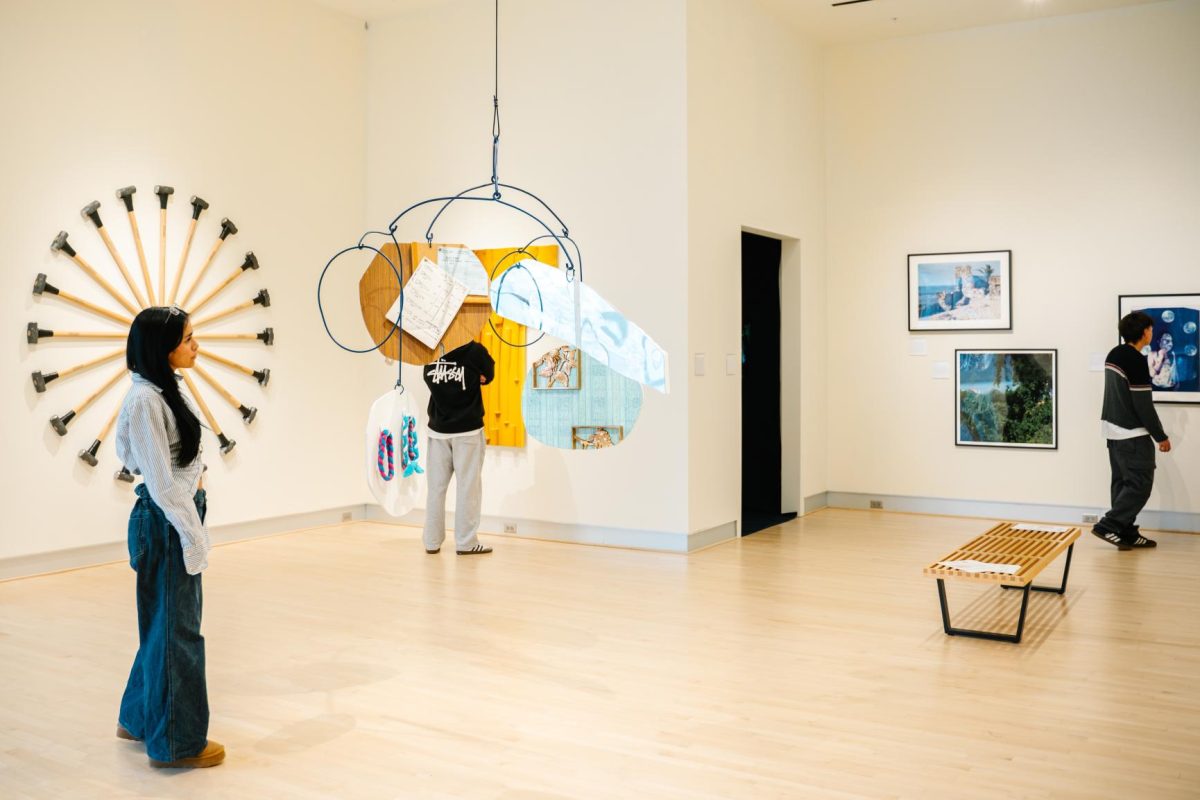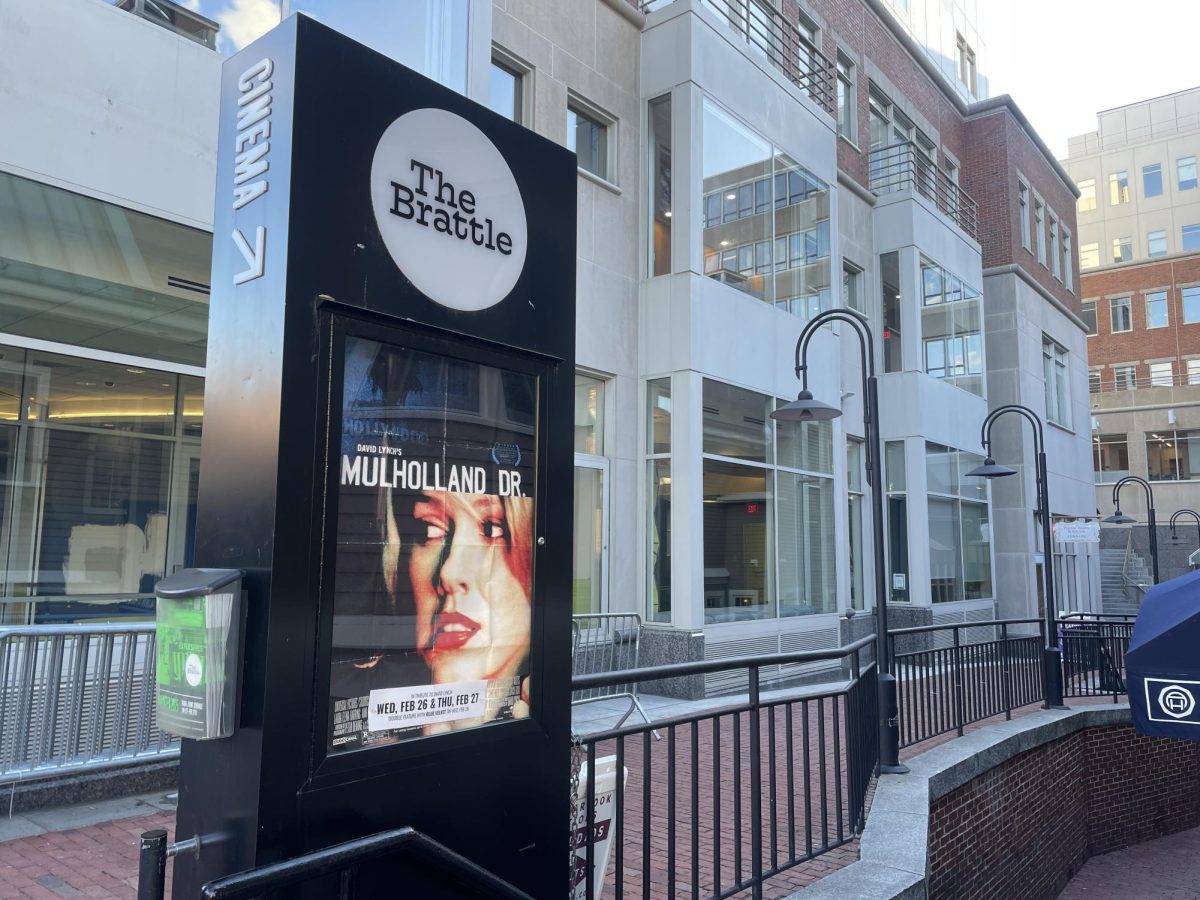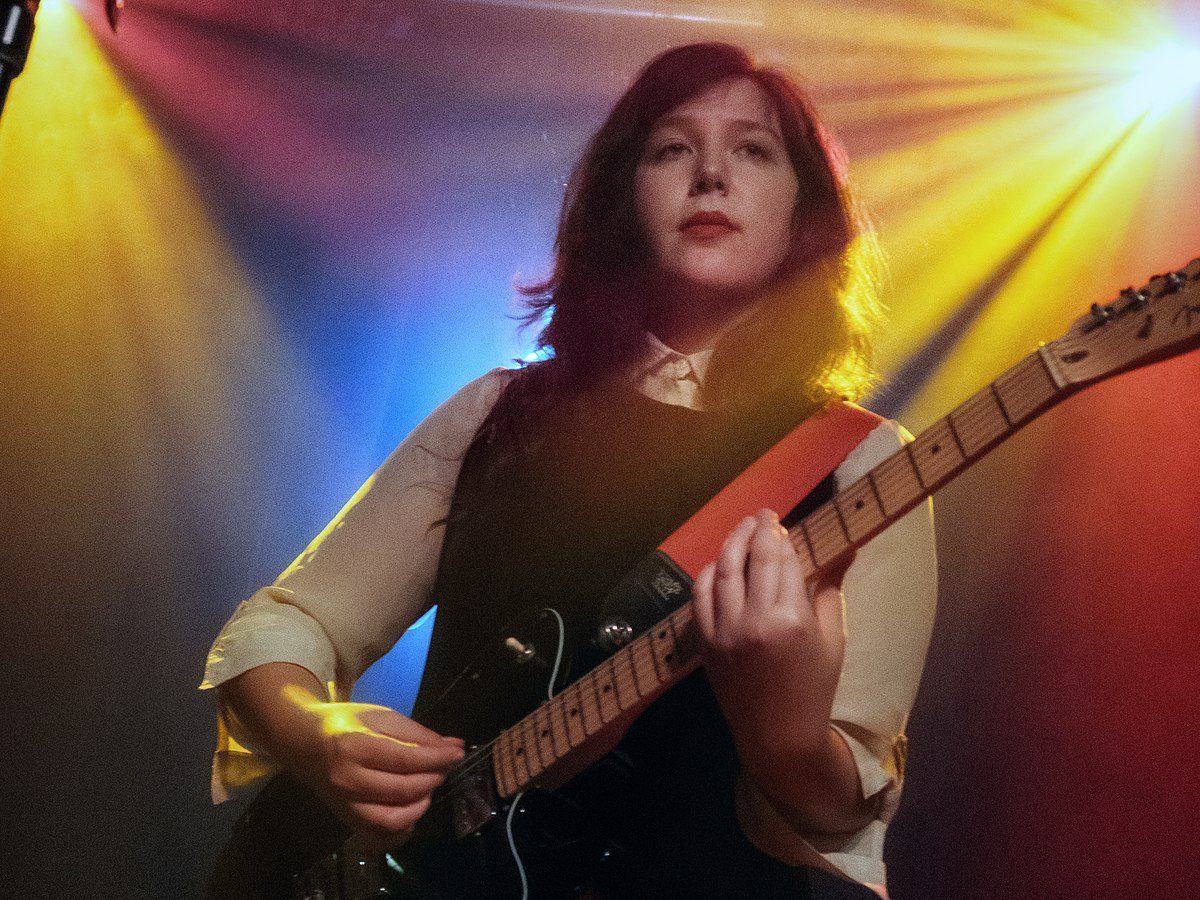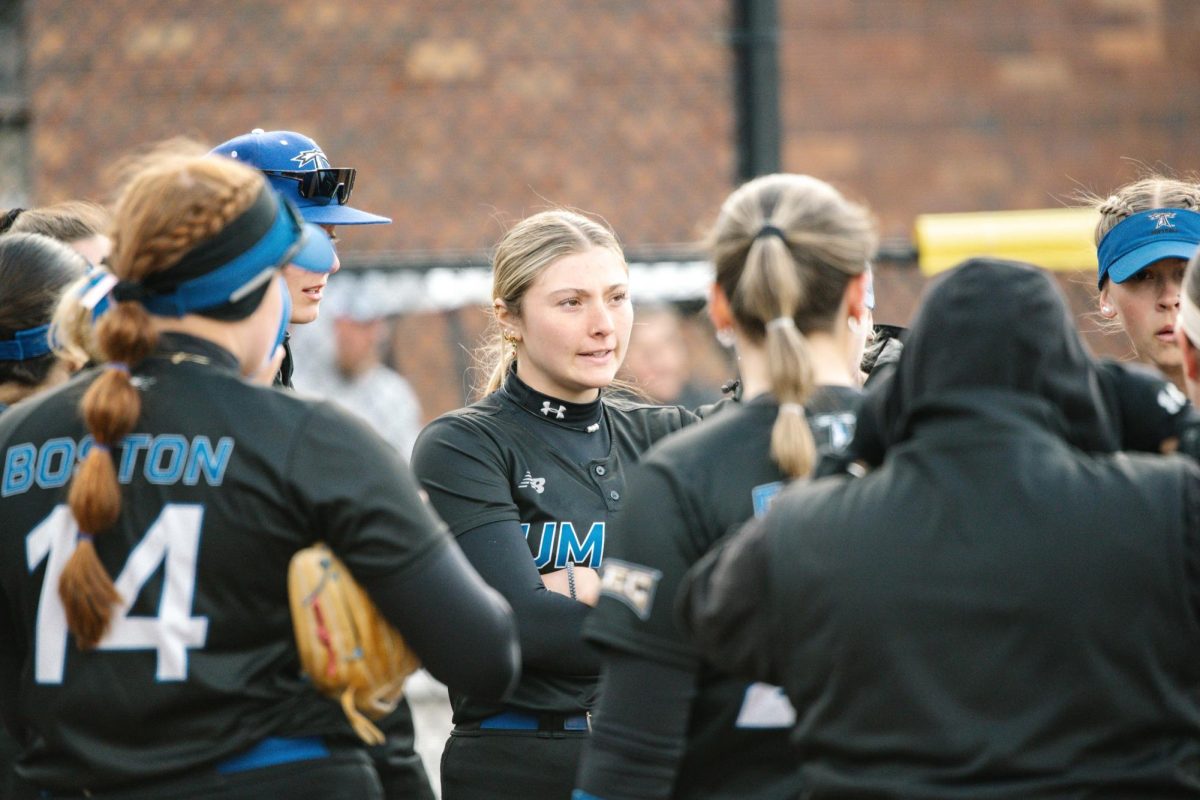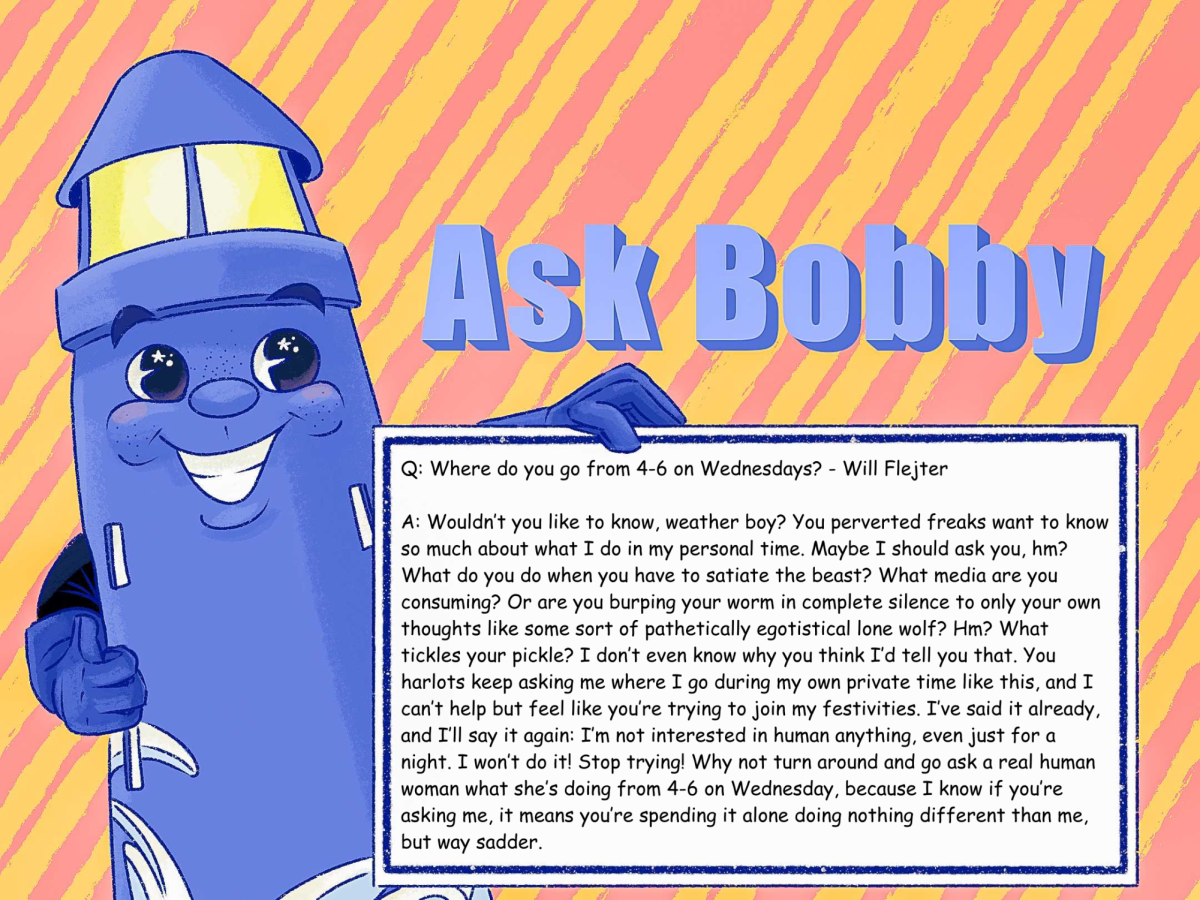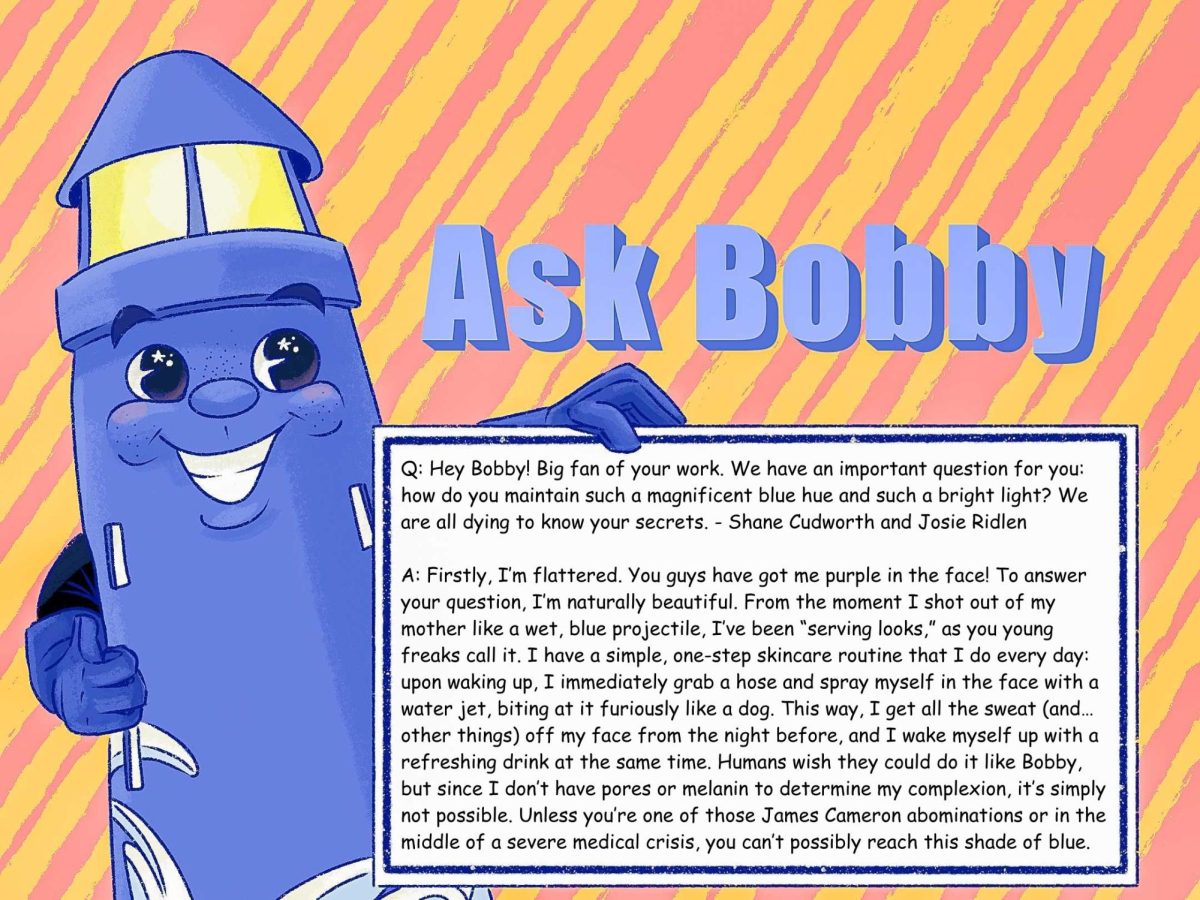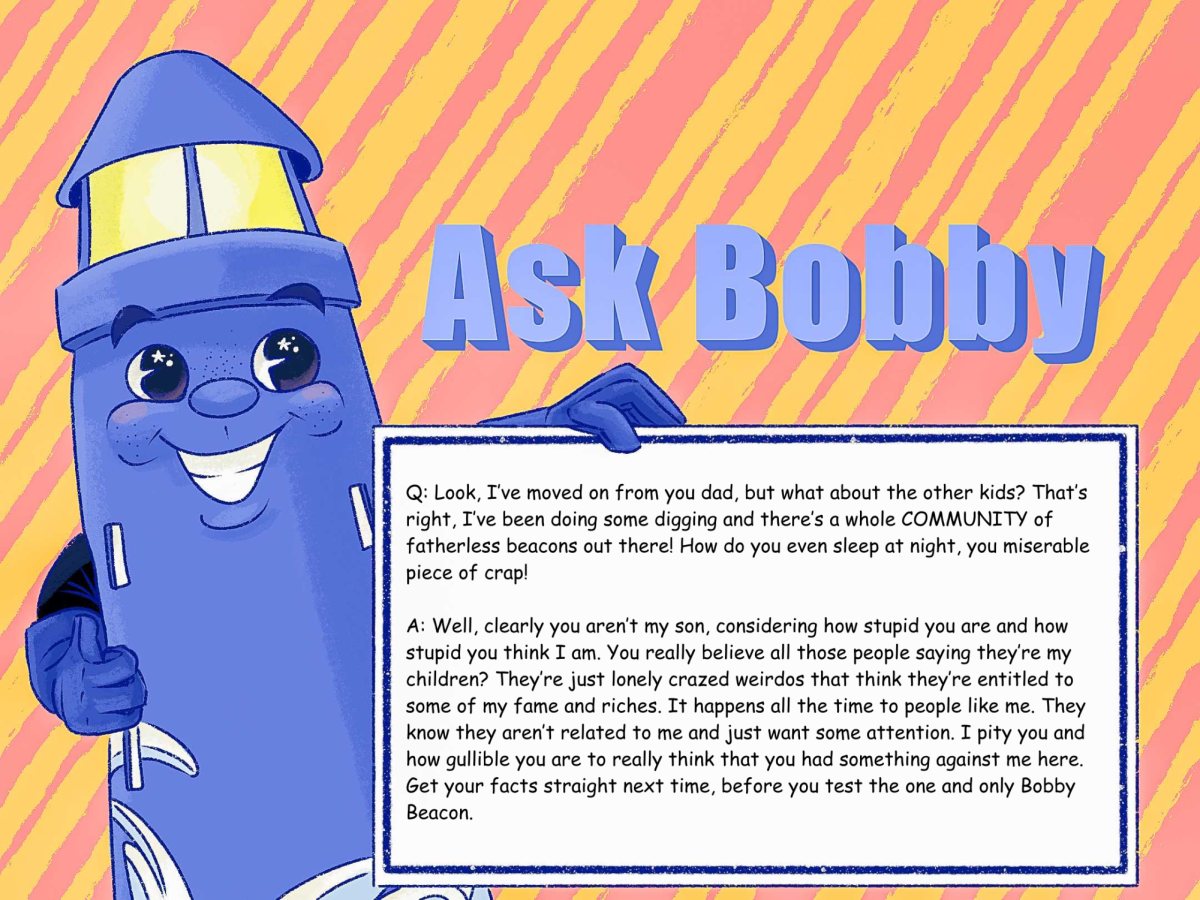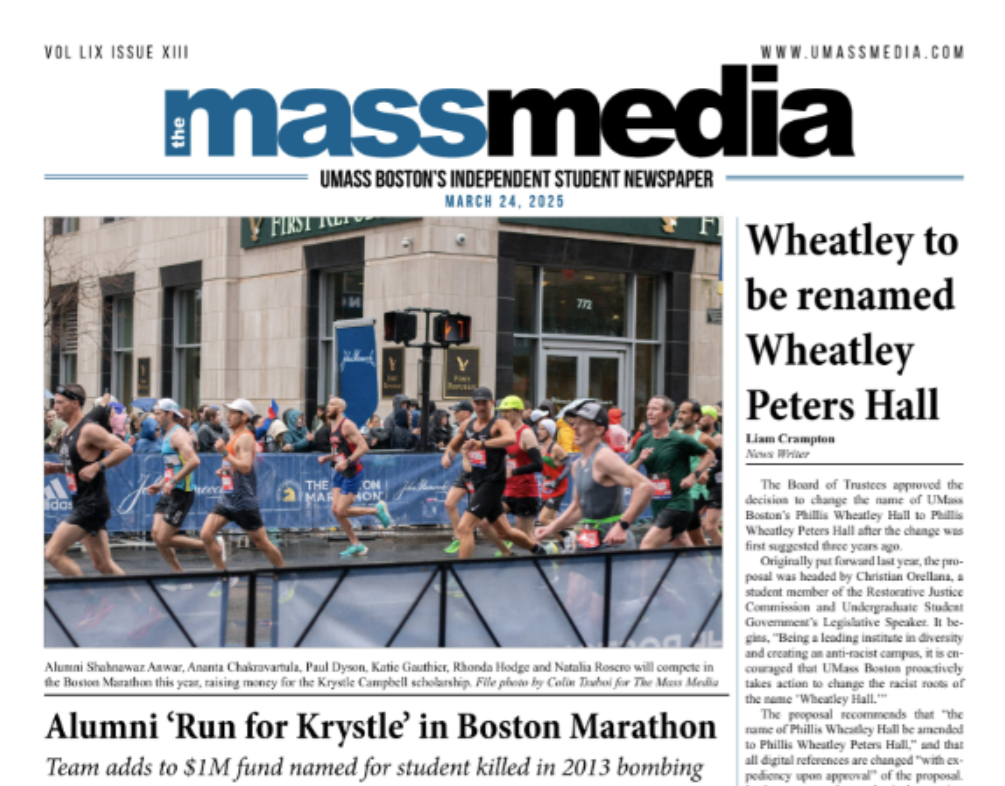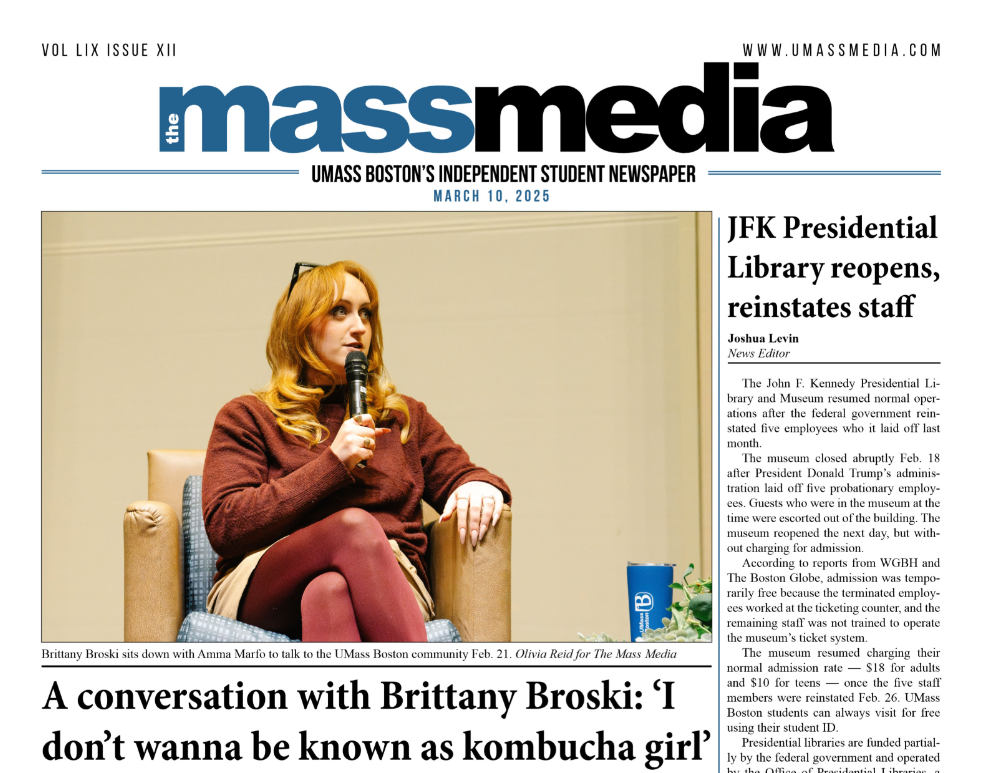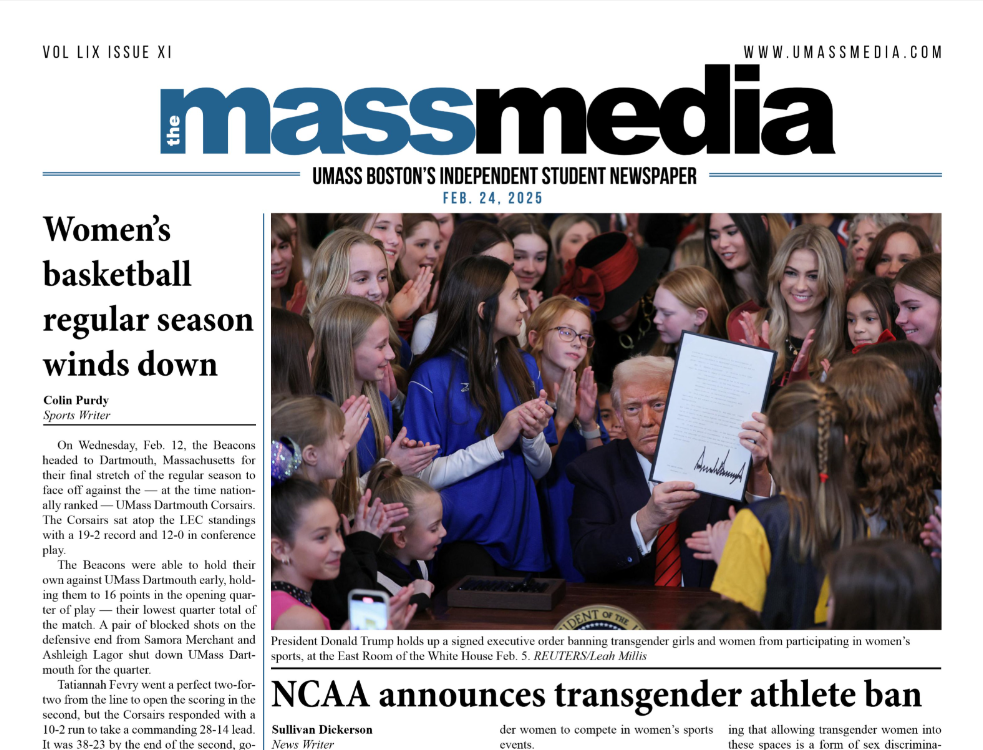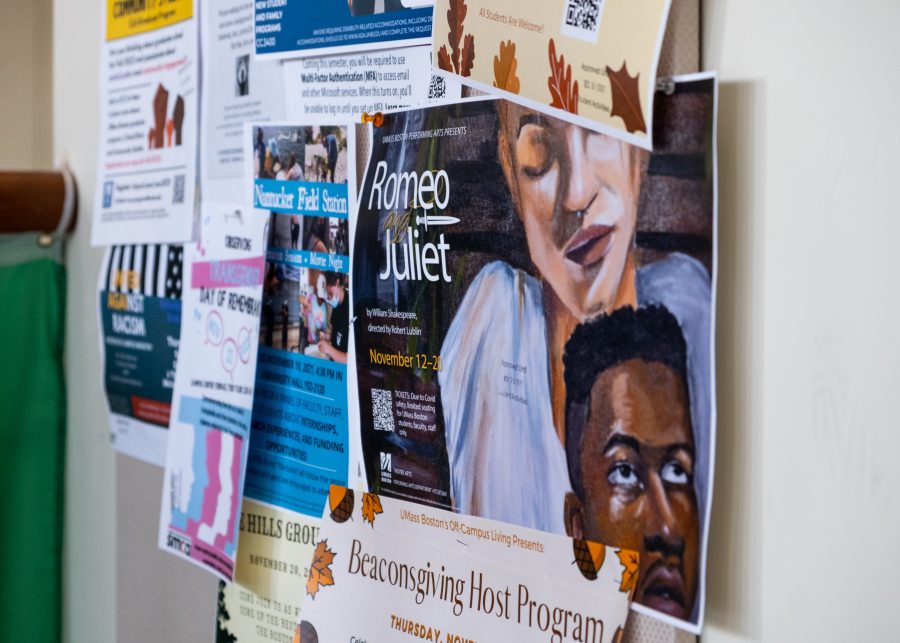UMass Boston brings Shakespeare’s star-crossed lovers to new audiences
A poster in the Campus Center promotes the recent Romeo and Juliet production. Photo by Josh Kotler / Mass Media Staff
November 18, 2021
In the midst of the pandemic, live theatre has suffered greatly. The tightly packed environment of theatre was nowhere near COVID-19 safe, and although some schools did COVID-safe productions of shows, the true experience of seeing a show had been put on pause. However, as vaccines have become more readily available, theatre has returned—UMass Boston’s theatre arts program included.
The performing arts department at UMass Boston’s production of “Romeo and Juliet” ran from Nov. 12 to Nov. 20, with limited seating only available to UMass Boston students, staff and faculty. The show took place in the University Hall Theatre, in an intimate black box setting with modern themes and costumes. As the play’s event page summarizes on the UMass Boston website:
“Shakespeare’s classic love story is set in a modern age, 15 years from now amidst an ongoing pandemic. Lublin’s direction explores love among the ruins, where the love between two members of feuding families is set in a world in tatters” (1).
For an English major that grew up doing theatre, Shakespeare has never been my favorite writer in the world. His pieces, which are meant to be performed and watched, are often ripped to shreds for meaning in English classes, making many people—including myself—dislike his work before they can truly experience it. However, this production reminded me of the capabilities of Shakespeare’s works, and how versatile Shakespeare can be.
One of my favorite parts of the show was the use of color in the costumes. The Capulets had been costumed in white—with the exception of Tybalt, who had been in stark black—which I noted as a nod towards Juliet’s innocence and purity. The Montagues, on the other hand, were in red and black, which I associated with Romeo’s rebellious nature and lust. In the middle of the color dynamic were Escalus, Mercutio and Paris—as well as the Nurse to a certain degree—who all had costumes in shades of brown and green, declaring their neutrality. The Nurse had a primarily white costume, but her apron was beige, showing the audience there was an element of neutrality to her.
I also enjoyed the chemistry and fight scenes throughout the show. The chemistry from all of the actors—not just the titular characters Romeo, recent UMass Boston graduate Abigail Dickson, and Juliet, Zoa Archer—were incredible. Mercutio (Melisa Cepeda) and Benvolio (Jesus Rodriguez) also had impeccable chemistry and comedic timing, and I knew I could count on the duo to brighten up the depressing show. Because of this chemistry, the fight scenes were also impressive. Lindsay Thurman, the fight captain for the show, did an excellent job of making the fights seem organic, especially during Tybalt’s (Leonardo Velasquez) death.
The show also did an excellent job of creating a full sensory experience. In addition to the costumes, dialogue and actors on stage, the sound and lighting design teams did a great job of using mood lighting and sound to create ambience for audience members. Even before the show began, audience members were welcomed into the theatre by music and narration akin to a radio station, blasting songs such as “Teenagers” by My Chemical Romance and “Beggin’” by Måneskin, with radio host narration about the feuding households, vaccinations or the government.
Once the show began, this ambience continued as well. Crucial scenes such as the two lovers’ first meeting at the Capulet’s party or the final death scene used lighting and sounds to make the audience feel as though they were in the scene with the characters. The party scene featured a variety of rainbow lights and two choreographed dance numbers to upbeat pop songs, which I found to be fun and a great solution to the awkward dancing and mingling that often comes with actors being asked to dance in a scene. The final scene had grim lighting and creepy noises to simulate the feeling of being in a crypt. The show had absolutely created a full sensory experience.
However, the one drawback I had with the show was the overarching pandemic theme. Though there had been mentions of the pandemic before the show with the radio or the newspaper out front, I felt as though the theme had not been developed completely. When I first heard the show had been set in a near future where the pandemic would still be plaguing the general population, I figured it would be an easy excuse for actors to wear masks and force Romeo and Juliet apart, however this was not the case. Although, masks do block some of the facial expressions and muffle some dialogue, so this is understandable.
The pandemic theme, overall, had been reduced to extremely long vaccine cards and Friar Lawrence distributing a vaccine to Romeo—vaccines being used as currency—and the Apothecary wearing scrubs and a gas mask while dealing with the sick. While overdoing the pandemic theme can come off as tacky or even insensitive, and the rich certainly have not cared about the COVID-19 restrictions, I would have liked a bit more in order to cement the theme in audience members’ heads.
This aside, the show was stellar. Though the entire cast was incredible, standout members of the cast were the Olivia Thornton as the Nurse, Melisa Cepeda as Mercutio and Jasmine El-Shurafa as Lady Capulet. Thornton and Cepeda had wonderful comedic timing and my eyes were immediately drawn to them in each scene they were in. El-Shurafa was the definition of a scene stealer in my book, with her scenes and creative choices standing out as some of my favorites in the show.
UMass Boston’s production of “Romeo and Juliet” was an electric and enthralling modern adaptation of Shakespeare’s classic play. With romance, drama, beauty, battles and, of course, Shakespeare’s original text, this play has a bit of something for anyone. Though “Romeo and Juliet” finished its performances on Nov. 20, the production will have two streaming dates in December.
1 https://www.umb.edu/news_events_media/events/romeo_juliet2






